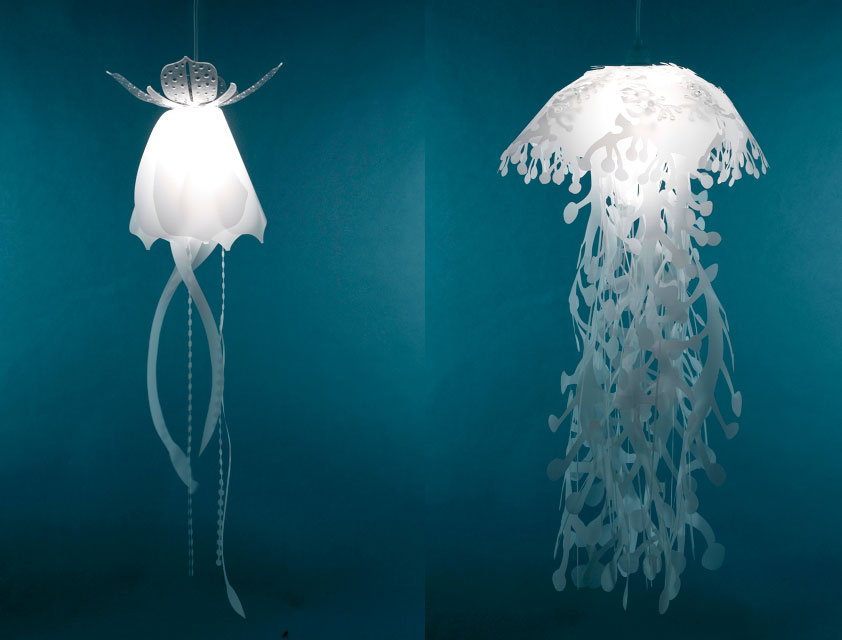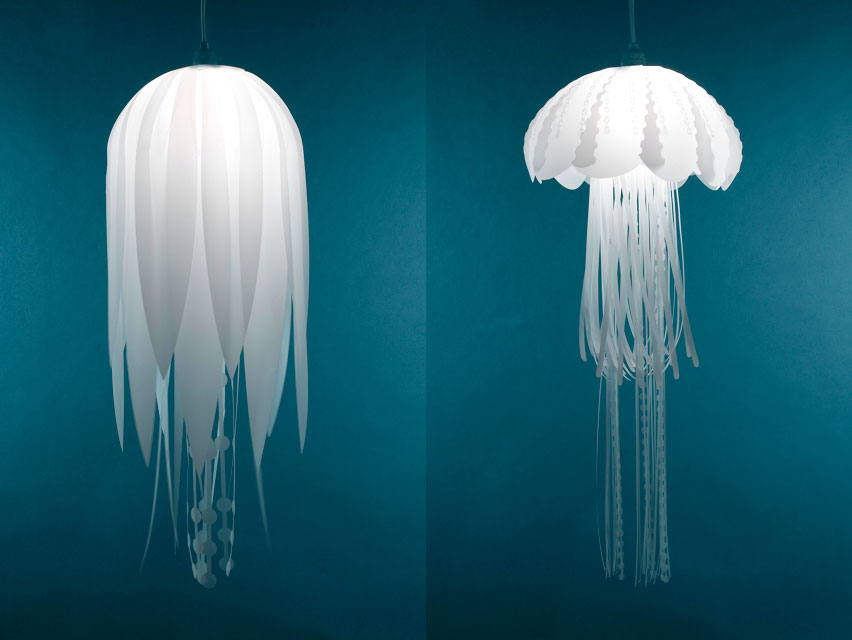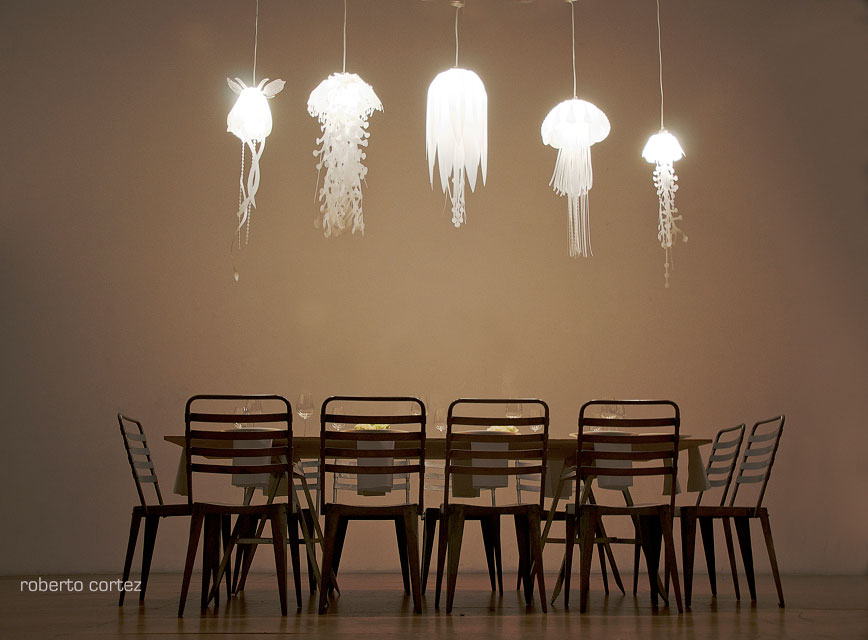Medusae: Ethereal Jellyfish Lamps

The deepest depths of the oceans still remain a mystery. It’s a place where ancient, bioluminescent creatures seem to live suspended in a dreamlike state. The order of jellyfish is pretty well explored, but they still have sense of alien magic. California designer Roxy Russell was inspired by these water inhabitants to has dream up the Medusae Collection of jellyfish lamps, gorgeous pendant lights with poetic names like Hydra, Ophelia and Medusa, characters from Greek mythology.
The diaphanous Medusa Pendant Lamp, ornate Polyp Pendant Lamp and ethereal Ophelia are made from velum finish polyester Mylar and white powder-coated aluminum. The designer works in recyclable PET (polyethylene terephthalate, a form of polyester), yet is very aware of the problems created by plastic debris in our oceans and the irony of adding to our ever-increasing plastic landscape. But she believes she is doing so consciously. After all, you wouldn’t toss these lamps the way one would empty water bottles or fast food packaging. The lamps are meant to endure, and possibly even remind us of the fragility of our ocean eco systems.
Russell donates a percentage of the profits to the Ocean Conservancy. The lamps arrive in a flat box and need to be assembled at home.
“The ocean is such a boundless source of inspiration for myself and many other people, in all fields. Unfortunately, I am also very concerned about the fragile state of it’s very complex eco-system.”
“I wanted to bring to the surface, and illuminate the growing problem of plastic polluting our oceans in a way that makes people inspired to help. We have a floating island of plastic garbage in the Pacific that is twice the size of Texas. Up to 70 percent of this plastic is below the surface, broken down into tiny pieces,becoming a toxic part of the eco-system. Countless fish and birds die from mistaking these bits for food.”
“This is an opportunity to look at how we might be contributing to the problem. Most people think it’s ok to use plastic bottles because they throw them in the recycle bin or think someone else will, but what they don’t realize is that much of the plastic that is manufactured never gets recycled.”






